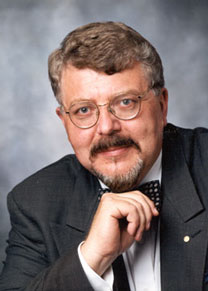Australian Electoral Commission Workshop
Australian Electoral Commission Workshop
| Dr Sev Ozdowski OAM, Acting Disability Discrimination Commissioner Sydney |
 |
Welcome
May I commence by acknowledging the traditional owners of the land on
which we meet today.
Welcome all of you to HREOC and to this workshop run by the Australian
Electoral Commission. May I particularly thank Deputy Electoral Commissioner
Andy Becker and his staff for making this process available today.
And may I welcome AEC staff and representatives of disability organisations,
who will participate in this process.
Secret ballot - important human right
Visiting a polling booth and having a secret ballot are basic human rights
which have been available to us as Australians for over a hundred years.
Sadly, they have not, and are still not, available to all Australians:
a fact of which most Australians would not be aware.
I hope that this workshop is a further step in the process of redressing
this serious flaw in our democratic process.
Access to the electoral process has been a focus of HREOC since the early
days of the DDA. Elizabeth Hastings, the first Disability Discrimination
Commissioner, work with the AEC to develop some access guidelines in the
mid 1990s. They were a good start to the process, but access issues have
progressed quite a deal since that time.
In 1999 HREOC ran an inquiry into the electoral process, and focussed
it on the Australian Electoral Council, the joint body of Federal and
State Electoral Commissioners. It would be less than honest to suggest
that this inquiry was one of our glowing successes. Whilst individual
members of the council, including the AEC, took some issues forward, the
council as a whole did not seriously engage with the process - little
progress was made.
Role of AEC
However, I am more confident that the current actions of the AEC will
be more successful. And I hope that those State jurisdictions which are
lagging behind will follow a good example.
Why do I think this process will bring greater success? Well, for a number
of reasons.
- Firstly, the AEC have already demonstrated their commitment to the
issue with the percentage of poling booths where some level of physical
access has been achieved. - Secondly, the AEC have developed an Action Plan, and an organised
approach to taking the issue forward. - And thirdly, and most importantly, they are engaging in discussions
with organisations representing people with disabilities.
In my view, all of these are pointers to success, and I congratulate
the AEC for following them.
I will go further, and indicate that HREOC staff will be happy to continue
working with you on these processes. In fact, we have already done so
by making suggestions for the updating of the AEC's accessibility checklist.
International trends
This is an issue of importance also in other comparable countries.
For example, in 2002 the US President signed into law the Help America
Vote Act.
Important provisions in the Act include:
- Requiring at least one voting machine that is accessible to people
with disabilities at each polling place; - Providing funding to replace punch-card and lever voting machines
with more user-friendly ones; - Earmarking $100 million for creating polling place access for voters
with disabilities; - Funding research for new voting technologies; and
- Funding state protection and advocacy systems' work to help individuals
register to vote, access polling places, and cast votes.
Another example, in May 2003 a settlement between National Organization
on Disability and the City of Philadelphia was reached in relation to
accessibility of voting in local elections. The settlement requires that,
by January 1, 2006, at least one electronic voting machine in each polling
place in Philadelphia will provide for accessibility for persons who are
blind or visually impaired to enable them to vote independently and with
privacy. The settlement also requires the City to take specific steps,
by no later than May 1, 2006, to increase the number of polling places
that are accessible to voters with mobility disabilities. These steps
may include using portable ramps, relocating polling places to accessible
locations, and making temporary modifications to public buildings.
Further, Canadians voting in Local elections next Monday will have the
option to vote over the internet or by telephone- not just Canadians with
disabilities, but any Canadians who register to do so.
Other democracies against who we would rank ourselves are moving on these
issues, and we need to remain part of that movement.
The Productivity Commission draft report
Closer to home, the Productivity Commission in its draft report on the
DDA, released two weeks ago, said:
- Standards of physical access and independent assistance at polling
places are not uniform. Given the importance of voting, it is inappropriate
to rely on individual complaints to improve access. - The Australian Government should amend the Electoral Act 1918 to ensure
polling places are accessible (both physically and in provision of independent
assistance) to ensure the right to vote of people with disabilities."
This comment provides excellent leverage for all of us with politicians,
who will have to be lobbied to achieve success across all of the areas
which are currently not accessible.
Conclusion
I gave you only few examples and I am sure you, as the experts, are aware
of many others. So, I shall let you get to work to develop means of addressing
these issues through co-operative effort.
I am unable to stay with you throughout the day, but members of the DRU
will certainly be participating and advising me of the outcomes.
Thank you.
